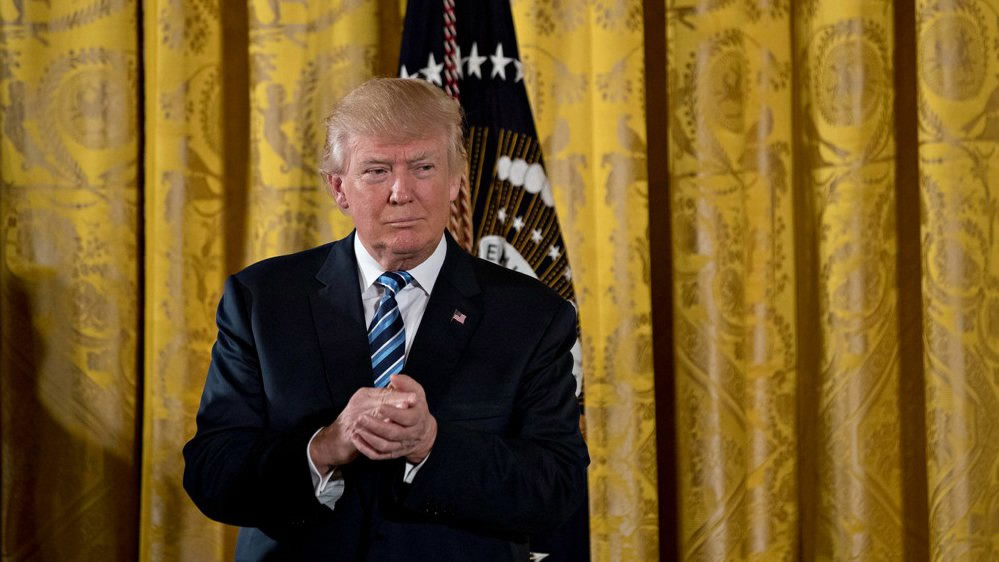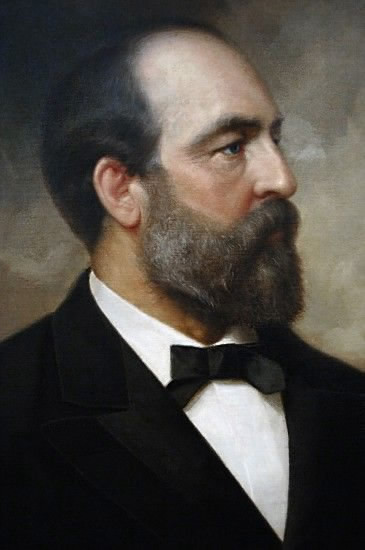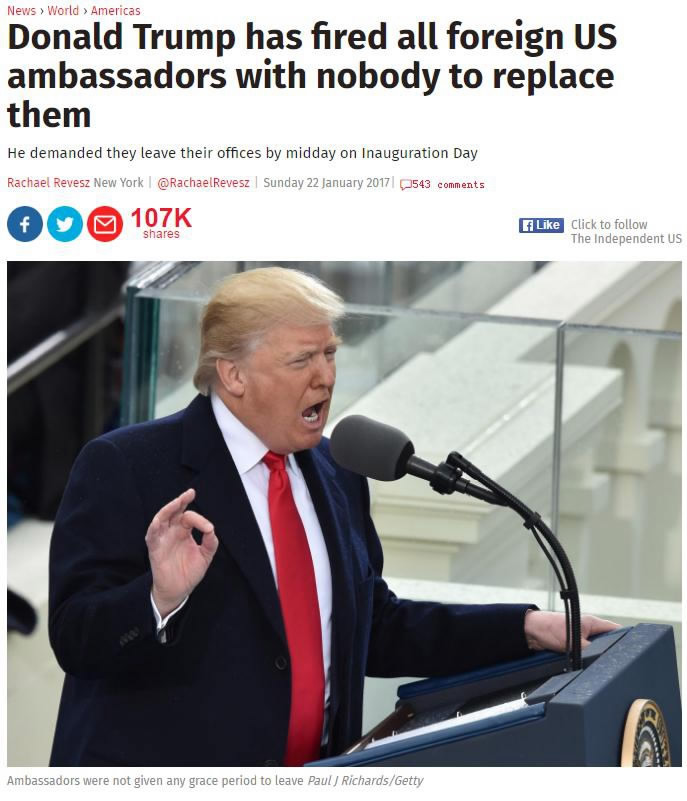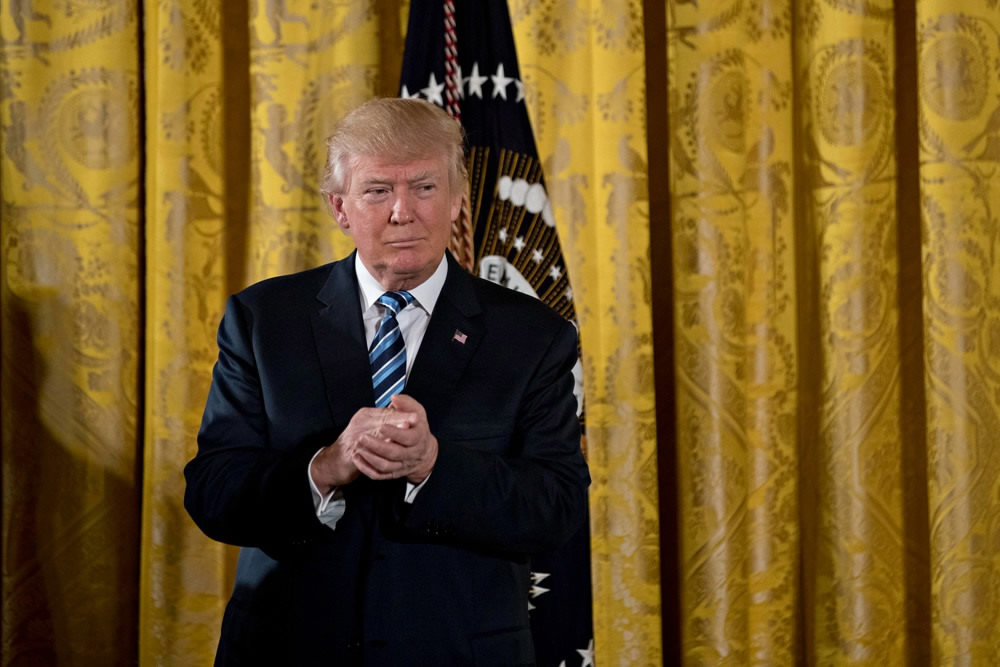
Politics
13:29, 24-Jan-2017
Opinion: The ritual of firing ambassadors and appointing others
Updated
10:37, 28-Jun-2018

Guest commentary by Hichem Karoui
On July 2, 1881, Charles Guiteau shot US President James Garfield as retribution for Garfield's refusal to appoint him as ambassador to Vienna or consul general to Paris.
Patronage excesses and scandals after the American Civil War had produced calls for reform to government bureaucracy, and Garfield's assassination by this disgruntled and delusional campaign worker was the tipping point for the passage of the Pendleton Act of 1883. The Pendleton Act and other civil service reforms that followed were based in part on the concept of a clearly discernible demarcation between politics and administration.

This is a portrait of James Garfield (1831-1881), the 20th president of the United States. /CFP Photo
This is a portrait of James Garfield (1831-1881), the 20th president of the United States. /CFP Photo
Yet, the US system is such that political appointments are similar to the spoils of war. Obviously, the two big parties are not interested in making any change while every administration is ready to preach morality to other countries.
No matter who is the new president, it is always the same ritual, though. Some come, some go. Presidential candidates and their advisors understand that appointments are a key mechanism for gaining political control of the executive branch and for pursuing electoral goals; and so they begin planning for appointments long before the inauguration day. With the Trump administration, the same ritual just happened. Political ambassadors were told to resign. They expected it.
Of course, there are the family problems of ambassadors with kids schooled in the foreign country. They need to be humanly addressed by the new administration.
But if you look at the issue from Trump’s perspective, ambassadors should be under political control, just like other senior policymaking positions. However, with about 80 US ambassadors forced into resignation on the day of inauguration, the human problem needs to be handled with tact and diplomacy, although one may hardly say that this is “the style of the new house”!

Article in The Independent: "Donald Trump has fired all foreign US ambassadors with nobody to replace them". / Screenshot from The Independent's website
Article in The Independent: "Donald Trump has fired all foreign US ambassadors with nobody to replace them". / Screenshot from The Independent's website
Ambassadors have historically been at the heart of the debate over appointments and performance, as they have played prominent roles in American history, both in pivotal crises and in patronage scandals and inter-branch conflicts over presidential power. Attacks on US diplomatic facilities and personnel, most recently in Libya, Egypt, and Yemen, also highlight the visibility of ambassadors and embassies to foreign audiences.
That is the reason why careerists in the State Department are highly resistant to political appointees and seldom recognize how important proximity to the president could be. But for those who are politically appointed, this very proximity can provide presidents with information that does not get filtered through the State Department hierarchy.
True, Donald Trump faces numerous obstacles in retaining the best and brightest in the service of his administration. He likely thinks that the service of many masters by the political appointees is a big problem.

US President Donald Trump listens during a swearing in ceremony of White House senior staff in the East Room of the White House on January 22, 2017 in Washington, DC. /CFP Photo
US President Donald Trump listens during a swearing in ceremony of White House senior staff in the East Room of the White House on January 22, 2017 in Washington, DC. /CFP Photo
Indeed, with each new administration, there is a perception that there are legions of political hacks, campaigners, and donors simply waiting for their commissions as appointees from the White House. The best ambassador is not always therefore chosen for his or her diplomatic competence. As Jesse Helms, former chairman of the Senate Foreign Relations Committee, often grumbled, “Nothing is going to pot because an ambassador's not there. I've seen them come and I've seen them go and the best thing about almost all of them is when they go.”
(Dr. Hichem Karoui is a diplomatic advisor and analyst. The article reflects the author's opinion, not necessarily the view of CGTN.)

SITEMAP
Copyright © 2018 CGTN. Beijing ICP prepared NO.16065310-3
Copyright © 2018 CGTN. Beijing ICP prepared NO.16065310-3